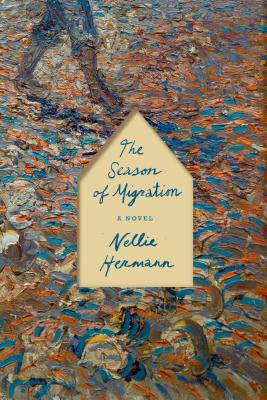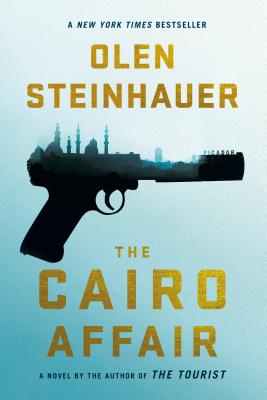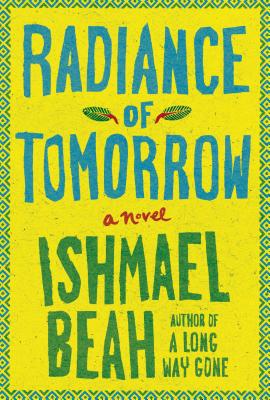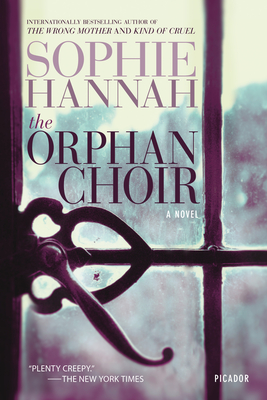The lyrically told story of one of the world’s greatest artists finding his true calling
Though Vincent van Gogh is one of the most popular painters of all time, we know very little about a ten-month period in the painter’s youth when he and his brother, Theo, broke off all contact. In The Season of Migration, Nellie Hermann conjures this period in a profoundly imaginative, original, and heartbreaking vision of Van Gogh’s early years, before he became the artist we know today.
In December 1878, Vincent van Gogh arrives in the coal-mining village of Petit Wasmes in the Borinage region of Belgium, a blasted and hopeless landscape of hovels and slag heaps and mining machinery. Not yet the artist he is destined to become, Vincent arrives as an ersatz preacher, barely sanctioned by church authorities but ordained in his own mind and heart by a desperate and mistaken spiritual vocation. But what Vincent experiences in the Borinage will change him. Coming to preach a useless gospel he thought he knew and believed, he learns about love, suffering, and beauty, ultimately coming to see the world anew and finding the divine not in religion but in our fallen human world.
In startlingly beautiful and powerful language, Hermann transforms our understanding of Van Gogh and the redemptive power of art.
Sophie Kohl is living a nightmare. Minutes after she confesses to her husband, a mid-level American diplomat in Hungary, that she had an affair while they were in Cairo, he is shot and killed.
Stan Bertolli, a Cairo-based CIA agent, has fielded his share of midnight calls. But his heart skips a beat when, this time, he hears the voice of the only woman he ever truly loved ask why her husband has been assassinated.
Omar Halawi has worked in Egyptian intelligence for years, and he knows how to play the game. But the murder of a diplomat in Hungary has ripples all the way to Cairo, and Omar must follow the fallout wherever it leads.
As these players converge on Cairo, Olen Steinhauer masterfully unveils a portrait of a marriage, a jigsaw puzzle of loyalty and betrayal, against a dangerous world of political games where allegiances are never clear and outcomes are never guaranteed.
Stan Bertolli, a Cairo-based CIA agent, has fielded his share of midnight calls. But his heart skips a beat when, this time, he hears the voice of the only woman he ever truly loved ask why her husband has been assassinated.
Omar Halawi has worked in Egyptian intelligence for years, and he knows how to play the game. But the murder of a diplomat in Hungary has ripples all the way to Cairo, and Omar must follow the fallout wherever it leads.
As these players converge on Cairo, Olen Steinhauer masterfully unveils a portrait of a marriage, a jigsaw puzzle of loyalty and betrayal, against a dangerous world of political games where allegiances are never clear and outcomes are never guaranteed.
A haunting, beautiful first novel by the bestselling author of A Long Way Gone
When Ishmael Beah’s A Long Way Gone was published in 2007, it soared to the top of bestseller lists, becoming an instant classic: a harrowing account of Sierra Leone’s civil war and the fate of child soldiers that “everyone in the world should read” (The Washington Post). Now Beah, whom Dave Eggers has called “arguably the most read African writer in contemporary literature,” has returned with his first novel, an affecting, tender parable about postwar life in Sierra Leone.
When Ishmael Beah’s A Long Way Gone was published in 2007, it soared to the top of bestseller lists, becoming an instant classic: a harrowing account of Sierra Leone’s civil war and the fate of child soldiers that “everyone in the world should read” (The Washington Post). Now Beah, whom Dave Eggers has called “arguably the most read African writer in contemporary literature,” has returned with his first novel, an affecting, tender parable about postwar life in Sierra Leone.
At the center of Radiance of Tomorrow are Benjamin and Bockarie, two longtime friends who return to their hometown, Imperi, after the civil war. The village is in ruins, the ground covered in bones. As more villagers begin to come back, Benjamin and Bockarie try to forge a new community by taking up their former posts as teachers, but they’re beset by obstacles: a scarcity of food; a rash of murders, thievery, rape, and retaliation; and the depredations of a foreign mining company intent on sullying the town’s water supply and blocking its paths with electric wires. As Benjamin and Bockarie search for a way to restore order, they’re forced to reckon with the uncertainty of their past and future alike.
With the gentle lyricism of a dream and the moral clarity of a fable, Radiance of Tomorrow is a powerful novel about preserving what means the most to us, even in uncertain times.
Louise Beeston is haunted.
Louise has no reason left to stay in the city. She can’t see her son, Joseph, who is away at boarding school where he performs in a prestigious boys’ choir. Her troublesome neighbor has begun blasting choral music at all hours of the night—and to make matters worse, she’s the only one who can hear it.
Louise has no reason left to stay in the city. She can’t see her son, Joseph, who is away at boarding school where he performs in a prestigious boys’ choir. Her troublesome neighbor has begun blasting choral music at all hours of the night—and to make matters worse, she’s the only one who can hear it.
Hoping to find some peace, Louise convinces her husband, Stuart, to buy them a country house in an idyllic, sun-dappled community called Swallowfield. But it seems that the haunting melodies of the choir have followed her there. Against the pleas and growing disquiet of her husband, Louise starts to suspect that this sinister choir is not only real, but a warning. But of what? And how can it be, when no one else can hear it?
In The Orphan Choir, Sophie Hannah brings us along on a darkly suspenseful investigation of obsession, loss, and the malevolent forces that threaten to break apart a loving family.
A gripping novel about the assassination of Leon Trotsky in Mexico City in 1940
In The Man Who Loved Dogs, Leonardo Padura brings a noir sensibility to one of the most fascinating and complex political narratives of the past hundred years: the assassination of Leon Trotsky by Ramón Mercader.
The story revolves around Iván Cárdenas Maturell, who in his youth was the great hope of modern Cuban literature—until he dared to write a story that was deemed counterrevolutionary. When we meet him years later in Havana, Iván is a loser: a humbled and defeated man with a quiet, unremarkable life who earns his modest living as a proofreader at a veterinary magazine. One afternoon, he meets a mysterious foreigner in the company of two Russian wolfhounds. This is “the man who loved dogs,” and as the pair grow closer, Iván begins to understand that his new friend is hiding a terrible secret.
Moving seamlessly between Iván’s life in Cuba, Ramón’s early years in Spain and France, and Trotsky’s long years of exile, The Man Who Loved Dogs is Padura’s most ambitious and brilliantly executed novel yet. This is a story about political ideals tested and characters broken, a multilayered epic that effortlessly weaves together three different plot threads— Trotsky in exile, Ramón in pursuit, Iván in frustrated stasis—to bring emotional truth to historical fact.
A novel whose reach is matched only by its astonishing successes on the page, The Man Who Loved Dogs lays bare the human cost of abstract ideals and the insidious, corrosive effects of life under a repressive political regime.
In The Man Who Loved Dogs, Leonardo Padura brings a noir sensibility to one of the most fascinating and complex political narratives of the past hundred years: the assassination of Leon Trotsky by Ramón Mercader.
The story revolves around Iván Cárdenas Maturell, who in his youth was the great hope of modern Cuban literature—until he dared to write a story that was deemed counterrevolutionary. When we meet him years later in Havana, Iván is a loser: a humbled and defeated man with a quiet, unremarkable life who earns his modest living as a proofreader at a veterinary magazine. One afternoon, he meets a mysterious foreigner in the company of two Russian wolfhounds. This is “the man who loved dogs,” and as the pair grow closer, Iván begins to understand that his new friend is hiding a terrible secret.
Moving seamlessly between Iván’s life in Cuba, Ramón’s early years in Spain and France, and Trotsky’s long years of exile, The Man Who Loved Dogs is Padura’s most ambitious and brilliantly executed novel yet. This is a story about political ideals tested and characters broken, a multilayered epic that effortlessly weaves together three different plot threads— Trotsky in exile, Ramón in pursuit, Iván in frustrated stasis—to bring emotional truth to historical fact.
A novel whose reach is matched only by its astonishing successes on the page, The Man Who Loved Dogs lays bare the human cost of abstract ideals and the insidious, corrosive effects of life under a repressive political regime.





No comments:
Post a Comment